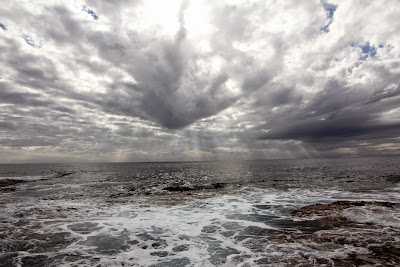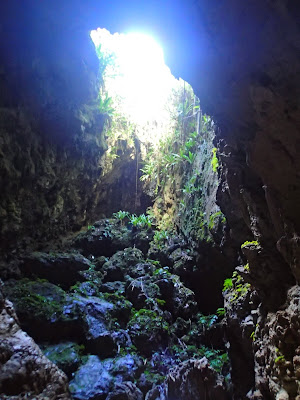With a rare westerly wind blowing for the last few days and diving having to be cancelled we were happy when it switched direction so I could get in the water snorkelling and kayaking again and do the slast dives.
I did my first night dive which was a bit of an experience with the inflorescene when we turned our torches off, we also did a deep dive in front of the matavai resort and then to the catacombs where we saw a turtle, and crayfish in the caves.
Also went out for one last kayak and fish in the north of the island and came across several curious sharks and some wahoo that we saw jumping out of the water probably trying to get away from them.
I wanted to go out on a fishing charter as I hadnt been able to catch any tuna or wahoo in the kayak but they were fully booked so will have to wait until next time.
Overall this was a wicked place to travel to with plenty of exciting things to do so we will be back for sure.


Hikulagi Sculpture Park

Taro and shellfish - the taro was amazing but I will leave the shellfish to the locals

Ahi baked us up some coconut and it was surprisingly good. We tried

We got on another bike trail through the forest and biked to Motu

The flat vegetation on the coast at Motu

Step ladder down to the coral reef

We had a look around the caves at Motu but could not find the entrance into the main cavern below us.

I went down to the Liku sea track to hang out and spotted a humpback whale spouting. This was the first whale sited by anyone in over a week. We jumped in the car and went down the coast in the hope to catch it but were only able to spot it at a distance through the binoculars.

Snorkelling off the outer reef at Liku we saw a white tipped reef shark

New coconut sprouting

The Vaihoko sea track was the most overgrown track we had been to.

Fossilied coral




We went back to talava arches and I popped the question to Karen under one of the arches



We celebrated by going to the Matavai Resort buffet dinner and fire dance night


Tahiono Retreat in Liku Village































